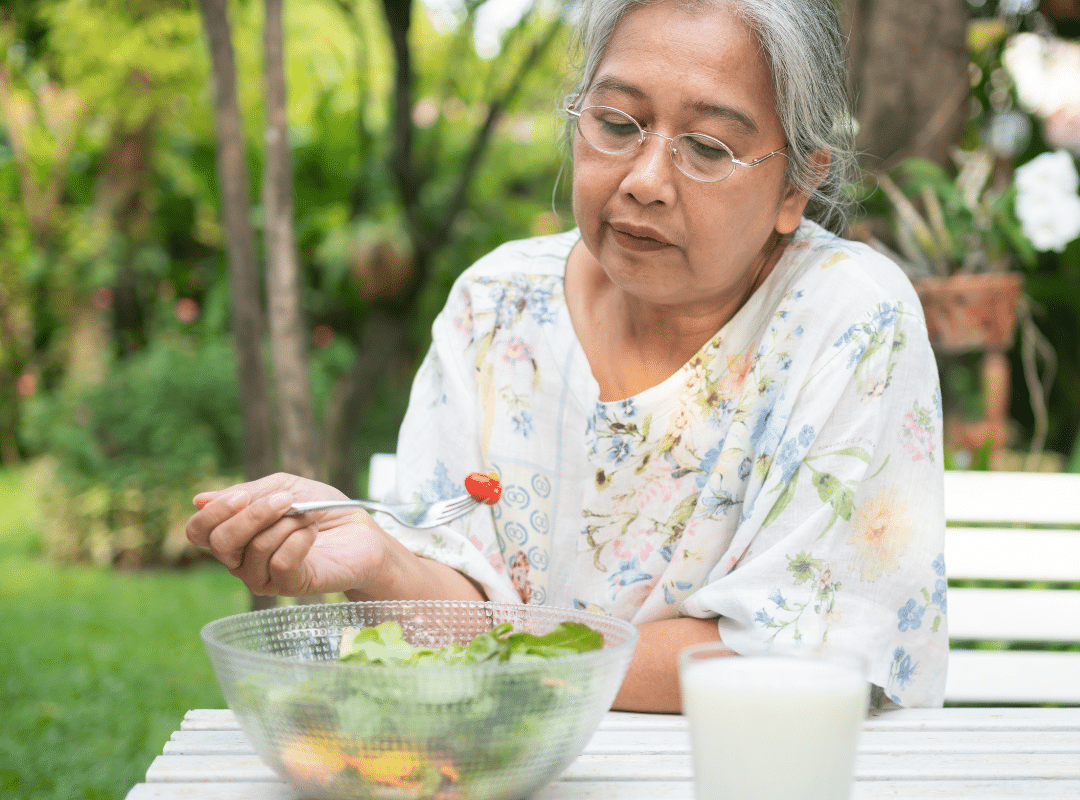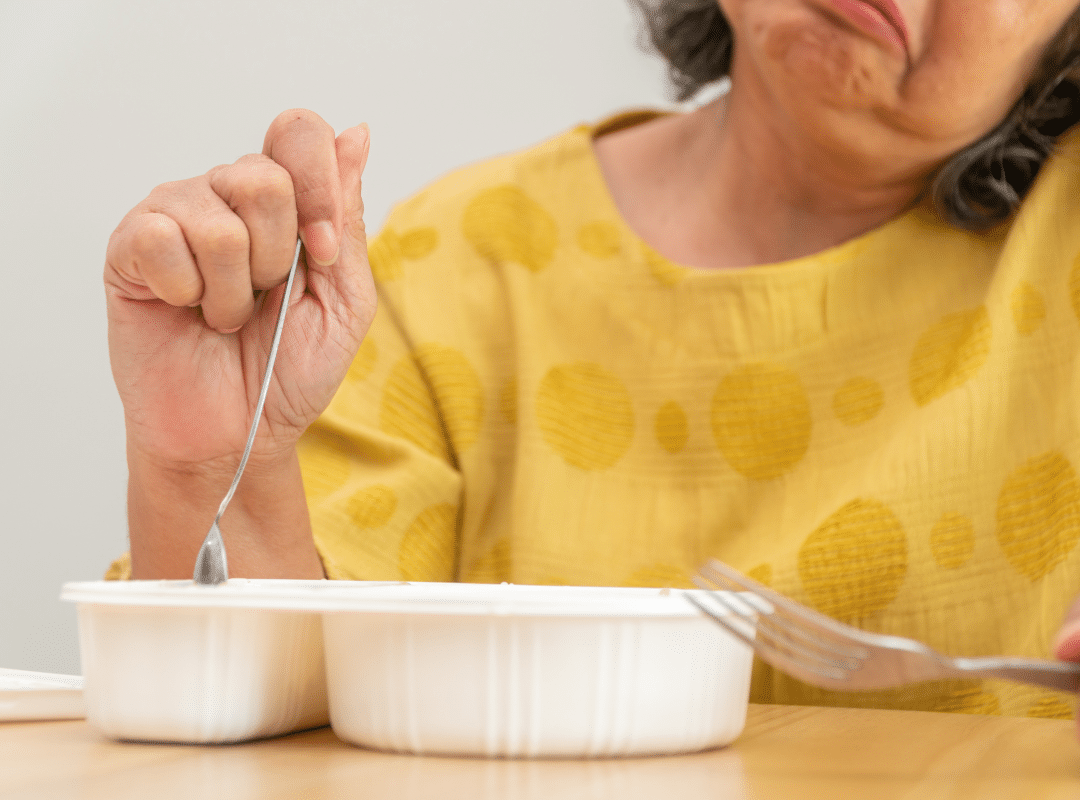Fostering a warm and engaging dining atmosphere can enhance meal enjoyment for the elderly at The Westland House.
Focusing on the sensory experience can spark a renewed interest in meals. It’s essential to contemplate various strategies that cater to individual needs and preferences.
Understanding these methods benefits appetite and overall well-being, leading to a more fulfilling experience in senior care facilities like The Westland House. What are some practical approaches you can implement?
How to Increase Appetite for Elderly: Effective Tips & Solutions
When it comes to increasing appetite in the elderly, creating a supportive and engaging environment is essential. One effective way to achieve this is through appealing meal presentation; colorful, well-arranged dishes can stimulate interest and excitement around food. Additionally, incorporating social dining experiences fosters community and belonging, encouraging residents to enjoy meals together. When they share stories and laughter during meals, it not only enhances their dining experience but also helps combat feelings of isolation. Regularly rotating menus can keep meals fresh and exciting, while themed dining events can spark enthusiasm. Remember, a warm, inviting atmosphere coupled with engaging conversations can significantly boost the appetite of elderly residents in your care. Furthermore, providing personalized care tailored to individual preferences can ensure that meals are nutritious and enjoyable for each resident.
Best Appetite Stimulant for Elderly: Top Medical & Natural Options
As you consider ways to stimulate appetite in the elderly, it’s essential to know that medical and natural options can play a significant role. Natural remedies like ginger and peppermint can be effective appetite boosters, as they help enhance digestion and create a more pleasant eating experience. Additionally, incorporating smaller, more frequent meals can make food less intimidating and more appealing. Medical options, such as medications prescribed by healthcare professionals, can stimulate appetite when necessary. Always consult with a doctor before starting any new treatment. Ultimately, combining these approaches, tailored to each individual’s needs and preferences, will yield the best results in encouraging a healthy appetite in elderly residents. Furthermore, exploring financial assistance programs can alleviate the stress of meal costs, allowing for better nutrition options in senior care facilities.
Supplements to Increase Appetite in Elderly: What Works Best?
Certain supplements can play a crucial role alongside dietary adjustments to effectively boost appetite in the elderly. Appetite enhancers like omega-3 fatty acids and zinc have shown promise in stimulating hunger. These nutritional strategies can help combat the common issue of decreased appetite in seniors. Additionally, protein powders or meal replacement shakes enriched with vitamins can offer calories and crucial nutrients. Always consult a healthcare provider before introducing new supplements to verify they’re safe and appropriate. Incorporating these effective supplements into your care routine can help the elderly enjoy their meals more and improve their overall health and well-being. Remember, supporting their appetite is crucial to enhancing their quality of life. Furthermore, exploring financial assistance programs may alleviate some pressure on caregivers, allowing them to focus more on nutrition and care.
Vitamins That Increase Appetite for Adults: Essential Nutrients to Know
While many factors can influence appetite in adults, specific vitamins are essential in stimulating hunger and promoting overall well-being. Appetite-enhancing vitamins, such as B vitamins, particularly B1 (thiamine) and B12, can significantly impact energy levels and digestive health, encouraging a more robust appetite. Vitamin D is also essential, as it helps in calcium absorption and can enhance mood, indirectly boosting appetite. Additionally, zinc plays a vital nutrient role by supporting taste and smell, which are critical for enjoying food. Ensuring your loved ones receive these essential vitamins can help improve their appetite and overall quality of life in senior care facilities. Consider incorporating these nutrients through a balanced diet or supplements as needed. Furthermore, understanding financial sustainability in senior care can alleviate some of the stress that affects appetite and well-being.

Treatment for Loss of Appetite in Elderly: Causes & Effective Solutions
Loss of appetite in the elderly can stem from various causes, and understanding these underlying issues is essential for effective treatment. Common causes of anorexia include medical conditions, medications, and psychological factors. Identifying these factors can help you implement targeted solutions.
| Causes of Anorexia | Effective Solutions |
| Medical Conditions | Regular health assessments |
| Medications | Review and adjust prescriptions |
| Psychological Factors | Counseling and support groups |
| Dental Issues | Regular dental check-ups |
| Social Isolation | Encourage group meals |
So, if you think the elderly just need to “eat their greens” and call it a day, think again! At The Westland House, we believe creating a vibrant dining experience is key—after all, who wants to munch on bland food while feeling like they’re in a hospital cafeteria? By spicing things up with colorful dishes, social meals, and tailored options, you can transform mealtime from a chore into a delightful experience. Let’s make eating enjoyable again; after all, life’s too short for dull food! For more information, give us a call at 734-326-6537.
Frequently Asked Questions
What is the best appetite stimulant for the elderly?
The best appetite stimulant for the elderly depends on their individual health needs. Doctors may prescribe medications like Megestrol acetate or Mirtazapine to help boost appetite. However, natural options such as high-calorie, nutrient-dense foods and appetite-boosting supplements like Ensure or Boost can also be effective. Consulting a healthcare provider is essential to determine the safest and most effective solution.
How can I increase my appetite naturally in the elderly?
To increase appetite naturally, encourage frequent meals rather than large portions. Nutrient-rich foods with appealing flavors and textures can help make eating more enjoyable. Staying physically active, maintaining proper hydration, and incorporating social meals can stimulate appetite. Herbal remedies like ginger, fennel, or peppermint may aid digestion and hunger.
How do you treat elderly appetite loss?
Treating appetite loss in the elderly involves identifying and addressing the underlying cause, such as medications, depression, or underlying medical conditions. Providing high-calorie, protein-rich meals and ensuring a pleasant eating environment can help. Encouraging light exercise and hydration may also support a better appetite. If appetite loss persists, consulting a doctor for possible medical interventions is recommended.
What to give an elderly person who won’t eat?
If an elderly person refuses to eat, try offering nutrient-dense, easy-to-eat foods such as smoothies, soups, or protein shakes. Soft foods like mashed potatoes, yogurt, or scrambled eggs can be more appealing if chewing is an issue. Providing favorite meals and making mealtime a social activity may encourage eating. If the problem continues, seeking medical advice is crucial to rule out underlying health concerns.

